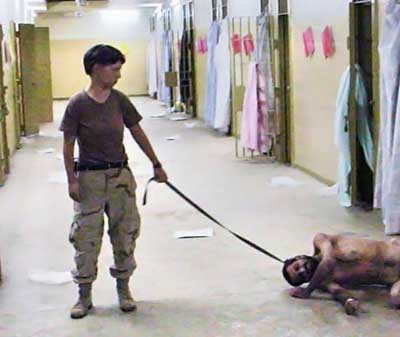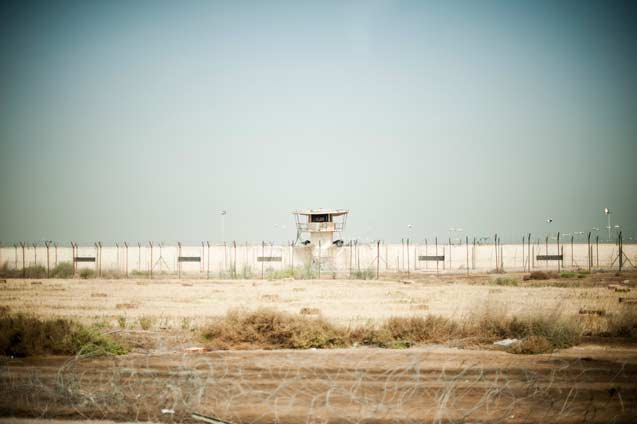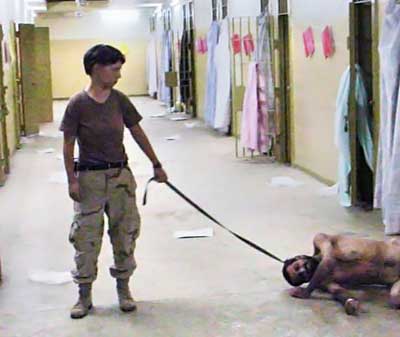
Abu Ghraib 10 Years Later: Challenging Corporate Impunity for Torture

By Vincent Warren, Truthout
28-04-2014
Ten years ago, the world got its first glimpse of images that would forever tarnish the United States' reputation for how it conducts its wars. On April 28, 2004, a "60 Minutes" broadcast leaked photos of US soldiers humiliating, tormenting, beating and sexually assaulting detainees at the US-run Abu Ghraib prison in Iraq. A decade later, survivors of these acts of torture are still waiting for justice.

Private corporate contractors, hired by the US government to interrogate detainees, played a key role in directing and encouraging the acts of the low-level soldiers in those photos. Tasked with collecting intelligence, civilian interrogators exploited a vacuum of military leadership at the prison to direct soldiers to "soften up" detainees and "set the conditions" for interrogation - euphemisms for instructions to torture.
Yet, despite universal outrage and demands for justice when the photos were released, 10 years after the scandal came to light and many years after low-level soldiers were court-martialed for their role, the contractors have not faced any form of punishment. Instead, they continue to operate, continue to receive multi-million-dollar government contracts and continue to profit off of US taxpayers.
United States Army photo from Abu Ghraib prison in Iraq showing Pvt. Lynndie England holding a leash attached to a prisoner collapsed on the floor.United States Army photo from Abu Ghraib prison in Iraq showing Pvt. Lynndie England holding a leash attached to a prisoner collapsed on the floor. (Photo: Wikipedia)The government could still prosecute the contractors for these human rights abuses, though it has shown no intention of doing so.

No one is holding their breath - least of all survivors from Abu Ghraib. Instead, the Center for Constitutional Rights filed a lawsuit against private contractor CACI Premier Technology Inc. for its role in the torture - enabling it, failing to put an end to it, and covering it up. Our case, Al Shimari v. CACI, is one of the few avenues left for holding CACI accountable for what it did.
Yet last year a federal judge dismissed the case; it is now on appeal.
In his opinion, the judge said that CACI cannot be held accountable in a US court because the torture occurred in Iraq - regardless of the US-headquartered corporation's role in orchestrating it. If allowed to stand, the ruling leaves a US corporation free to conspire with US soldiers to torture detainees in a prison (and a country) under US control without facing any consequences or being held accountable anywhere.
It leaves people like Suhail Al Shimari - who was beaten, starved, threatened with death, electrically shocked, and subjected to other torment and torture - with nowhere to turn for justice. And it leaves contractors like CACI, who already profit heavily from the US' wars, to continue to earn millions without carrying any legal risks for their actions outside of the United States - even when they lead to torture.
If we are to prevent corporations from profiting off of the torture and cruel, inhuman and degrading treatment of people like Mr. Al Shimari, government contractors must know that they will face consequences for their actions. CACI's liability should turn on whether it conspired to commit torture - not where the company conspired to commit it.
Our courts must remain an avenue for holding torturers accountable, especially when they reside in the United States. Mr. Al Shimari and his fellow plaintiffs have waited long enough.
Comments



